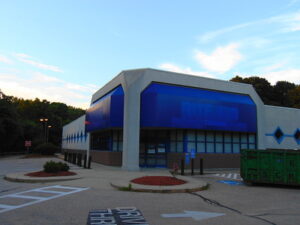Yesterday, I wrote about a change in Illinois state law that now allows community colleges to build affordable housing intended for low-income students. Prior to the change, Illinois community colleges could not own student housing.
This is a broader trend that places community colleges squarely in the position of providing facilities that other community entities probably should manage. Last week, I wrote about a failed “mixed-use” student housing project funded by the Alamo Colleges. The project was supposed to generate revenue for the district. Had all gone according to plan, the project would have funded a new academic building in downtown San Antonio. It never worked, and its flimsy business model could not survive the pandemic. After losing tons of endowment money, the project will now serve as affordable housing for qualifying San Antonio residents.
Community colleges don’t make good landlords
Last week, I also wrote about a community college in upstate New York that wanted to sell its dormitories to a third-party operator. The non-profit proxy that held the title to the buildings wanted the USDA to forgive the balance of an $11M loan the proxy took. This project’s business model relied on an overabundance of foreign students to fill the dorms. The pandemic (and the Trump Administration) had other ideas. The overall sketchiness of the deal attracted the unwanted attention of both the New York Attorney General and the US Attorney for the Northern District of New York. Long story short: the proxy still holds the title, can’t pay off the loans and is teetering on the brink of foreclosure.
Community colleges don’t make good business operators
Last week, I wrote about a pair of fitness centers on the campuses of San Mateo County community colleges. Taxpayers unknowingly funded them. There was no unmet need for fitness centers by San Mateo County community college students. Private clubs are wholly adequate in just about every market to provide these services. It puts the community college(s) in the awkward position of competing with private businesses while employing an unfair funding advantage. WCC is in this very position right now. Except the “unfair funding advantage” has been turned inside out. Instead of generating revenue, WCC’s fitness center consumes millions of dollars the taxpayers authorized for WCC’s operations.
They don’t make good convention operators
WCC’s Master Plan contemplates the construction of a hotel and convention center. Once again, this is a community facility that for at least the past three or four decades, the community has declined to build. In fact, the community has been rather forceful in its rejection of an “Ann Arbor Convention Center.” Such a facility is not within the mission of the community college, and hotel space is abundant in Ann Arbor. Yet, there it is in WCC’s Master Plan.
It appears community colleges have become the dumping ground for public works projects like affordable housing, private health clubs, mixed use development, public metered parking, recreational facilities, convention centers and hotels. All without the express approval of the voters who will ultimately pay for these projects. The mission of the community college is to educate people. Full stop.
There is a limit to what community colleges should do
There is certainly nothing wrong with coordinating with the local housing authority to supply affordable housing to community college students. But the community college should not be building affordable housing. Likewise, there is nothing wrong with public parking projects, recreational facilities, or convention centers. But cities should pay for their own parking structures, fund their own recreational facilities, and build their own convention centers.
These projects almost always spring from the self-serving priorities of community college trustees, who wish to fund their business aspirations with community college dollars. The promotors staunchly pledge that these projects will “pay for themselves.” Better still, these can’t-miss projects will certainly generate future funding for some desirable mission-centric function. Without fail however, the miss always occurs before any actual revenue materializes. The community college -or more aptly – the taxpayers get shafted, while the sponsoring Trustees and administrators slip quietly away.
A community college is not a business incubator, nor a real estate developer. It is not the community’s general contractor of last resort for orphaned, misfit or otherwise unloved public works projects. Community colleges are providers of affordable, high-quality occupational and vocational education. It is a starting point for students who hope to complete their academic goals elsewhere. If Trustees cannot avoid redefining the College’s mission to fit (and fund) their own pet projects, they should resign.
Photo Credit: Penn State University , via Flickr






























